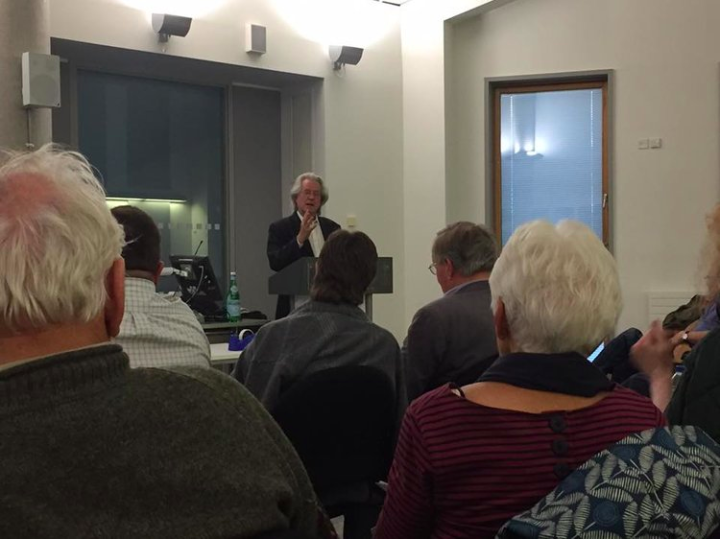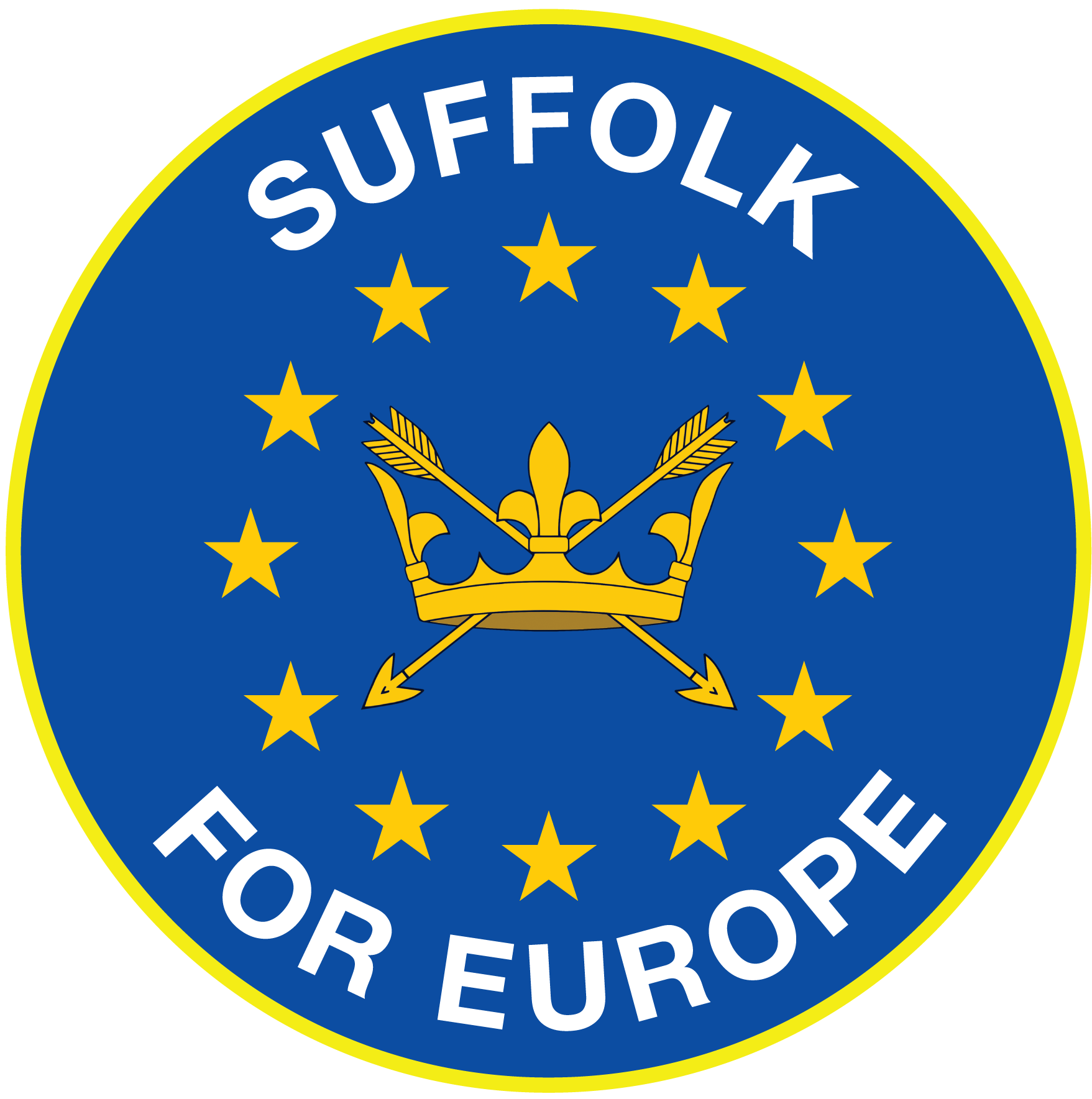The following is a transcript of notes (taken during the meeting) from the address given by Prof. Grayling (ACG) on the subject of acceptable and appropriate resistance to Brexit.
 [Any words in italic are those of the rapporteur and are meant to aid understanding in the transcript]
[Any words in italic are those of the rapporteur and are meant to aid understanding in the transcript]
Key messages of the evening – “retain your faith” and maintain your “anger”.
“There is no mandate for Brexit.”
Other key messages were developed later in the talk.
ACG justified these assertions by reminding us of the bar employed in the 1979 Scottish devolution vote – 40% of the total electorate required – authorised in advance of the referendum, to ensure that only a sufficient and democratic minimum would be acceptable for the decision to be accepted. In the event, 51.6 % of votes cast were in favour of devolution, but that was below the 40% minimum threshold and was therefore rejected.
The Brexit referendum was explicitly ‘advisory only’ and in achieving 51.9% (of the 72% who voted) of votes cast, represented just 37% of the eligible electorate. This lack of constitutional critical mass must therefore mean that in accordance with the guidance offered to Members of Parliament (that the referendum was ‘advisory only’ and not binding on either parliament or government) the decision is not mandating. The MPs briefing note 07212 gave clear guidance both on the advisory, consultative nature of the referendum (§5) and warned that if it were regarded otherwise it would need a supermajority bar (§6). This guidance (to our elected Members used in support of their decision making and in the HoC library) has been side-lined in mainstream Press coverage. Note also that 16-17 year olds, EU citizens, and expats living abroad for more than 15 years were all denied a vote, unlike the Scottish independence referendum of 2015; the franchise for the referendum was artificially restricted. Had these groups been included there would have been a significant Remain majority.
ACG suggested that the, then, P.M. David Cameron was cornered into his position by the constant manipulation of anti-EU party activists (known by John Major as “Bastards”) and which were currently represented by the pronouncements of Jacob Rees Mogg and “The Moggies”. The referendum result was artificially derived to achieve a desired outcome to satisfy a political party’s unity rather than the need of the majority of voters… (ACG “a slow moving coup” with no constitutional foundation).
A further opportunity for legal challenge related to the procedural processes that undermined the delivery of the Article 50 Bill to the parliament. Representative democracy cannot be working properly if a bill lacks clarity and proper definition (the half page of ill prepared foolscap) and is delivered at 4:07 in the morning! (see section 2 para1 of the Article 50 White Paper March 2017). It was rushed out and politically engineered to get a mandate from a whipped Tory majority supported by a Parliamentary Labour Party concerned at losing its core support from its EU sceptical urban centres. (Carol Cadwallader’s investigative journalism was mentioned)
ACG then offered a useful review of the impacts of the use of social media and big data “hyper-targeting” producing an alarming effect through the aggregation of voters into a single voting block via “the necklace of messages”. The approach allows the manipulation of messages to opposing groups in a cleverly targeted way that means “all things to all men”. ACG also commented on the “playing” of the media including the BBC being manipulated into delivering misleading Leave headlines on a daily basis and to a predetermined agenda – usually delivered in time for the needs of the R4 “Today” programme – so influential in the news day and on other journalists.
The Government have no idea on how to cope with the initial EU line on our removal from the EU. The hard EU line on “No parallel discussions” and the likely duration of the discussions following commencement in the next few weeks. So to get the best result [whether a second referendum or a softer Brexit with continued membership of the single market] we need to campaign for the duration of uncertainty to be minimised. To do this we must stay vigorous and remember that “the fight to stay is only just beginning”.
The question of organising the Remain supporting groups, nationally, remained open. Whether unified or as a well-coordinated network we needed to take heart that a broader coalition of prominent actors were waiting for the correct time to activate a higher profile campaign.
There followed a discourse on the various effects of
- The resurgence of a more militant and youthful Labour left wing, enlivened by a promise of student debt being swept away or minimum wages increase
- The growing inequality gap – as differentiated from the poverty gap – that amplifies the extent of the gap between the haves and have-nots.
- “The Tsunami of realities” i.e. the volume of problems arising from Brexit, such as the Border for Northern Ireland, Gibralter and the loss of EU legislation for Consumer and environmental protection.
Cumulatively, the electorate would start to realise the many factors they may not have been properly informed about. ACG proposed that the individual issues needed to be quantified and explained in detail. This would help to overcome the “emotion” and “attitudes” put about by those who wanted to influence people into voting “leave”.
Unity to progress. Looking to the horizon and not just the balance sheet. Remind people that
- Help younger people to get involved in their civic and political duties from a much earlier age with various forms of support and training.
- The membership deal we currently have lasts to March 2019 and cannot be bettered as it includes so may get outs and opt outs including Schengen.
- Immigrant workers create a net benefit to our Gross Domestic Product GDP
- It may take ten years (probably much less) to get back in – if we leave.
There is and has been a conspiracy of silence about the EU – unless it is to decry waste in expenditure. “Does anyone know the differing functions of Brussels and Strasburg?”
Some Conclusions
- Wave the flag for the EU
- Talk up the key points until the debate about the Brexit deal becomes more current in a drive for potential support – increase membership of pro remain groups
- Maintain a commitment to a regular meeting place to encourage participation and interest
- Same time – same place will generate exponential growth – eventually.
- Write to MPs – different people – different topics – different times. (Agree the topics from within the Alliance)
- Campaign to get the EU issue onto the television and into other media.
- Remind politicians that a further vote to ratify the Brexit deal may be the only way of avoiding political oblivion. The electorate deserve to be offered full disclosure on the deal that a government obtains before exit papers are signed on our behalf.
- Don’t give up – stay motivated – stay (controlled) angry and participate.
[Notes taken by Stephen Andrews 6th June 2017, edited by ACG 13 June 2017]
